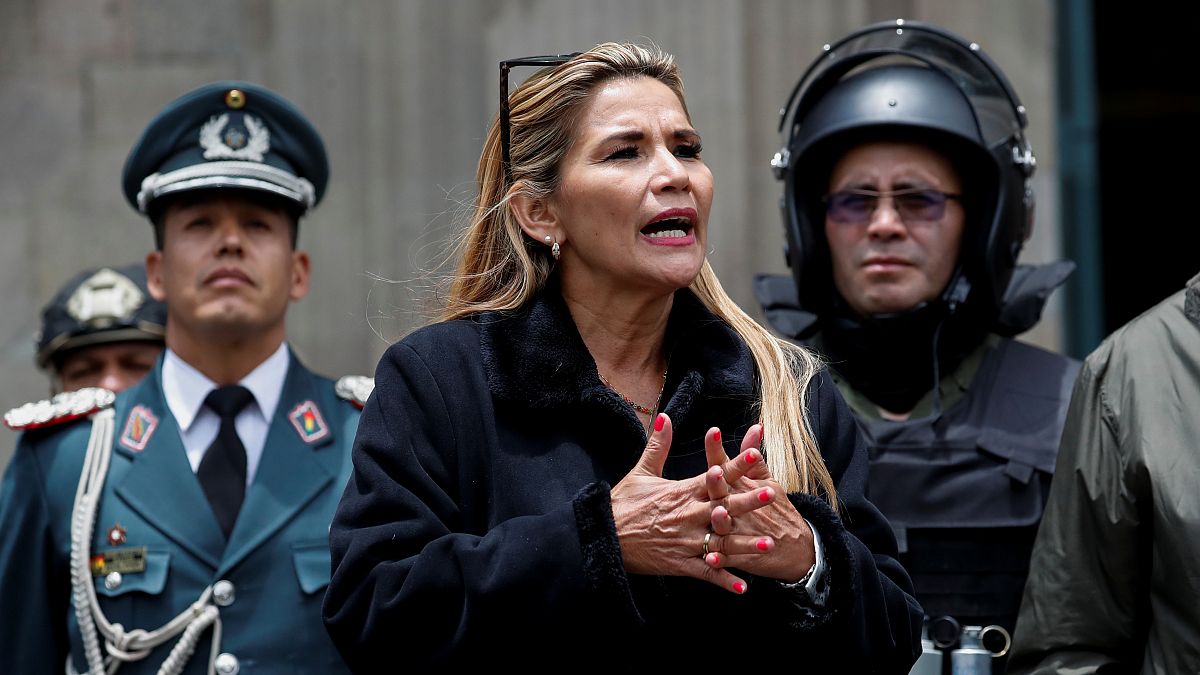Less than a month ago, it would have been impossible to predict that Jeanine Áñez, 52, a lawyer with a low political profile, would end up ruling Bolivia, at least temporarily.
Less than a month ago, it would have been impossible to predict that Jeanine Áñez, 52, a lawyer with a low political profile, would end up ruling Bolivia, at least temporarily.
On November 13, amid a serious political crisis, Áñez has been named the country's interim president.
She replaces first indigenous president Evo Morales, who has been granted political asylum in Mexico.
Áñez went to the former presidential palace in Bolivia to swear in as the second president in the country's history.
With this entry, the former senator marked the new political tone. Her next actions will be to appoint a team of ministers for a transition government that calls for new elections, in her words, "as soon as possible". The appointments will probably include names from the police and the armed forces.
How did she get to the presidency?
As in Venezuela, the shadow of self-proclamation looms over the Latin American nation. For the governments of Brazil and the United States, Áñez is already the legitimate interim president of Bolivia, but for her predecessor Morales, she is part of a coup and a self-proclaimed right-wing senator.
“From the legitimate Government of Venezuela, we recognize Jeanine Áñez as interim president of Bolivia in her mission to guide a constitutional transition towards a presidential election,” tweeted Juan Guaidó, who was recognised as president of Venezuela by more than 50 countries against the Bolivarian leader Nicolás Maduro.
Evo Morales's resignation came on Sunday when the country's armed forces "suggested" that he take the step to "pacify" Bolivia. Bolivian citizens had been protesting in the streets for more than 20 days, ever since the elections, which the Organization of American States (OAS) recommended to cancel citing "clear manipulations".
The political scientist Iván Arias told to Euronews that article 169 of the Bolivian Constitution establishes that the vice president must occupy that position when the president resigns. However, he said, "in this case, the vice president also resigned."
In the line of succession, the following option is the president of the House of Senators, "but she also resigned because she is from the same party."
For Marcelo Arequipa, an expert in Bolivian politics, "someone who has tanks and weapons cannot tell a civilian to resign." Morales's absence and the subsequent power vacuum was not voluntary, he said, but the result of a coup d'etat.
A decade in the Senate
Áñez entered Parliament in the 2009 election.
In the 2010-2015 parliamentary period, Áñez became a fierce opponent to the construction of the road through the heart of the Indigenous Territory and Isiboro Sécure National Park (Tipnis), a Morales project that received a strong response from indigenous groups.
In her second term as a senator, since 2015, she focused on legislative work to prevent femicide and violence against women. She also voted against nominating Evo Morales for a fourth term,
Áñez's is a native of a small population in the Amazon department of Beni. Her participation in politics was consolidated in 2006, when she was elected departmental representative in the Constituent Assembly that drafted the country's new Magna Carta, promulgated in 2009 by Morales.
